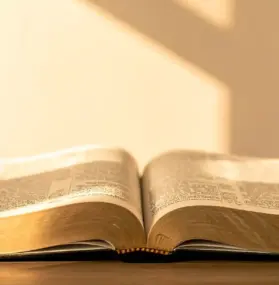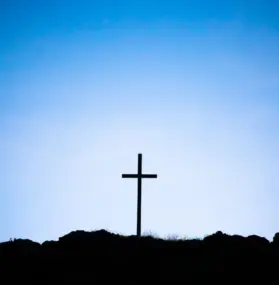- by Carrie Shaw
- on August 25, 2025
A Post-Truth Truth (If There Even Is One)
In a post-truth world, what isn’t up for debate?
We’ve inherited a culture shaped by the catchcry “you do you” – where truth is subjective, identity is fluid, and even morality is open to reinterpretation. Right and wrong have become personal preferences. The highest good, we’re told, is doing whatever feels right for you.
But here’s the thing: not all choices stay personal. Some ripple outward. And when someone’s “truth” causes harm to another, we suddenly pull up short. We say, “That’s not okay.”
Most of us agree that killing an innocent person is wrong. It violates something sacred – an unspoken but shared belief that each human life has value and should not be taken by another. But even here, the issue gets complicated. What about self-defence? Or tragic accidents? What about nuance?
If someone dies in a car crash because the brakes failed, we grieve – but we don’t blame the driver the way we would if they had deliberately run someone down. Why? Because intent matters. Responsibility matters. And whether we realise it or not, we’re operating with an invisible framework that tells us where the line is. We sense, deep down, that some things are just wrong.
The Line in the Sand
The moment we say something is wrong, we’re appealing to a standard outside of ourselves. A universal ought. But where did that line come from? And who gets to draw it?
It turns out, we believe in moral objectivity more than we’d like to admit. Our legal systems are built on it. Our shared values depend on it. We don’t function as a society without some collective understanding that there are things humans ought to do – and things we must not do.
For thousands of years, cultures have reached for frameworks to make sense of this: laws, philosophies, religious teachings. In the West, much of our moral backbone traces back to the Ten Commandments and the teachings of Jesus – whether or not we still claim them. Do to others as you would have them do to you (Matthew 7:12) has become common moral shorthand, even among those who’ve never opened a Bible.
But here’s the irony: we’ve kept the ethics, while forgetting their source.
We still drink from the stream, but we’re hesitant to name the spring.
The God-Shaped Ethic
It’s hard to make sense of moral responsibility without a foundation beneath it. If we are just random atoms bumping around a meaningless universe, then the idea of “right” and “wrong” becomes nothing more than personal taste. Murder might be unpleasant to us, but we can’t call it wrong in any absolute sense. There are no rules – just reactions.
But if there is a God – if we are made in His image, created with intent and worth – then morality is more than a social contract. It is an echo of His nature.
Our instincts to love, protect, and act justly aren’t arbitrary – they’re woven into us by the One who made us. The “line in the sand” isn’t something we made up. It was drawn by a hand bigger than ours.
Two Kingdoms
Jesus spoke of this line, too. In Matthew 7, he described two paths, two trees, and two foundations – two kingdoms, really. One leads to life. The other, to ruin.
His Sermon on the Mount is often called a kingdom manifesto. It paints a picture of the kind of life that flows from living under God’s rule: a life of mercy, humility, justice, and love. And at its heart is the golden rule – treat others the way you want to be treated.
In other words: here’s the line. This side is life. That side is death. Choose well.
But he didn’t just describe the Kingdom – he announced it. “Repent, for the Kingdom of Heaven has come near,” he said (Matthew 4:17).
In him, God’s Kingdom broke into the world, not as a political takeover, but as a quiet revolution of hearts, values, and vision. It’s already here, in part.
But one day, the line between the two kingdoms will disappear entirely, as the Kingdom of God overtakes all.
So… What Now?
We all want to live well. To do what’s right. To be on the side of life, not death.
But if we’re honest, we can’t make sense of right and wrong without admitting there’s a deeper truth beneath it all. One that doesn’t shift with opinion polls or change with the times. A truth with a source.
And if that’s true – if there is a moral law, then maybe there’s also a moral Lawgiver. Maybe the line in the sand was drawn not to restrict us, but to lead us home.
The invitation isn’t just to do better or try harder. It’s to ask the bigger question: What if God is real? What if He’s good? What if He made us for something more?
In a post-truth world, that might just be the most radical truth of all.
“I am the way, the truth, and the life. No one comes to the Father except through me.”
– [Jesus] John 14:6






